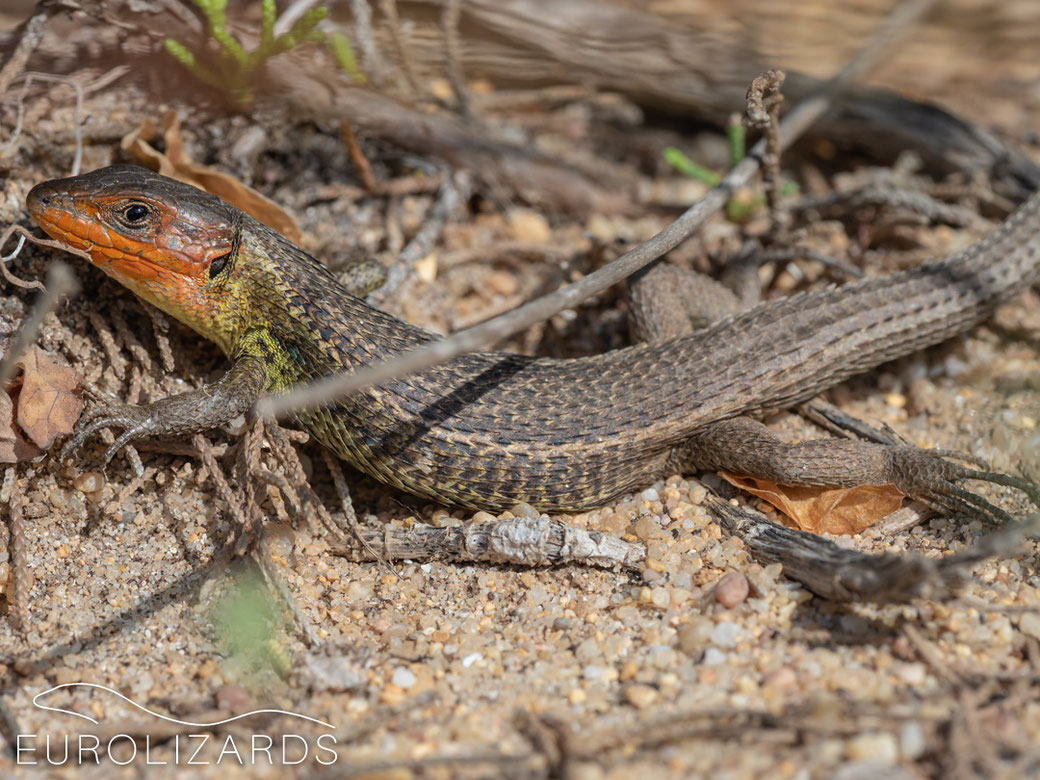Psammodromus algirus - Large Psammodromus

The Iberian / North-African genus of Psammodromus - together with Gallotia from the Canary Islands - constitutes the sub-family Gallotinae wich differs from all other Lacertid Lizards worldwide. The genus of Psammodromus is represented by four species in our area.
The European distribution area of Psammodromus algirus covers southern France and a major part of the Iberian Peninsula (except of the extreme North). Additional populations exist on Lampedusa and (introduced) on the Balearic Islands.
The Large Psammodromus inhabits a wide range of habitats, from coastal dunes to the mountains up to 2000 m (Sierra Nevada). Probably, it is the most common and widespread lizard of the Iberian Peninsula. Being so common, this species may be underrated. Anyhow, it is a really beautiful lizard: It has characteristic white to yellowish (dorso-)lateral stripes and strongly keeled scales which make them appear rough-scinned. Females and juveniles frequently show orange colours on the tail and hind legs. During mating season, males may have reddish heads.
Due to their big distribution range, these lizards co-occur with many other Lacertid species. But with regard to the mentioned characters, they cannot be confused with other species.
Within Psammodromus algirus, there seems to be a wide genetic diversity. Therefore, the Iberian populations were divided in two species in 2006: Psammodromus manuelae for the northern part of the Iberian Peninsula and Psammodromus jeanneae for the southern part. Further analysis in 2010 however revealed that this taxonomic split wasn’t valid.
Instead of this, there seems to be a western lineage (including Northern Africa) and an eastern lineage*. Approximately, the border between the two lineages seems to be marked by the line Gibraltar – Madrid. (Note, that the division line in the map is rather illustrative.)
Males of the western lineage show bright orange to reddish heads during mating season. In contrast to this, males of the eastern lineage may have yellow throats but no bright orange heads.





* VERDU-RICOY, J. & CARRANZA, S. & SALVADOR, A. & BUDACK, S.D. & DIAZ, J.A. (2010) - Phylogeography of Psammodromus algirus (Lacertidae) revisited: systematic implications. - Amphibia-Reptilia, 31 (4): 576-582.

EUROLIZARDS - The Home of European Lizards! © Birgit & Peter Oefinger
